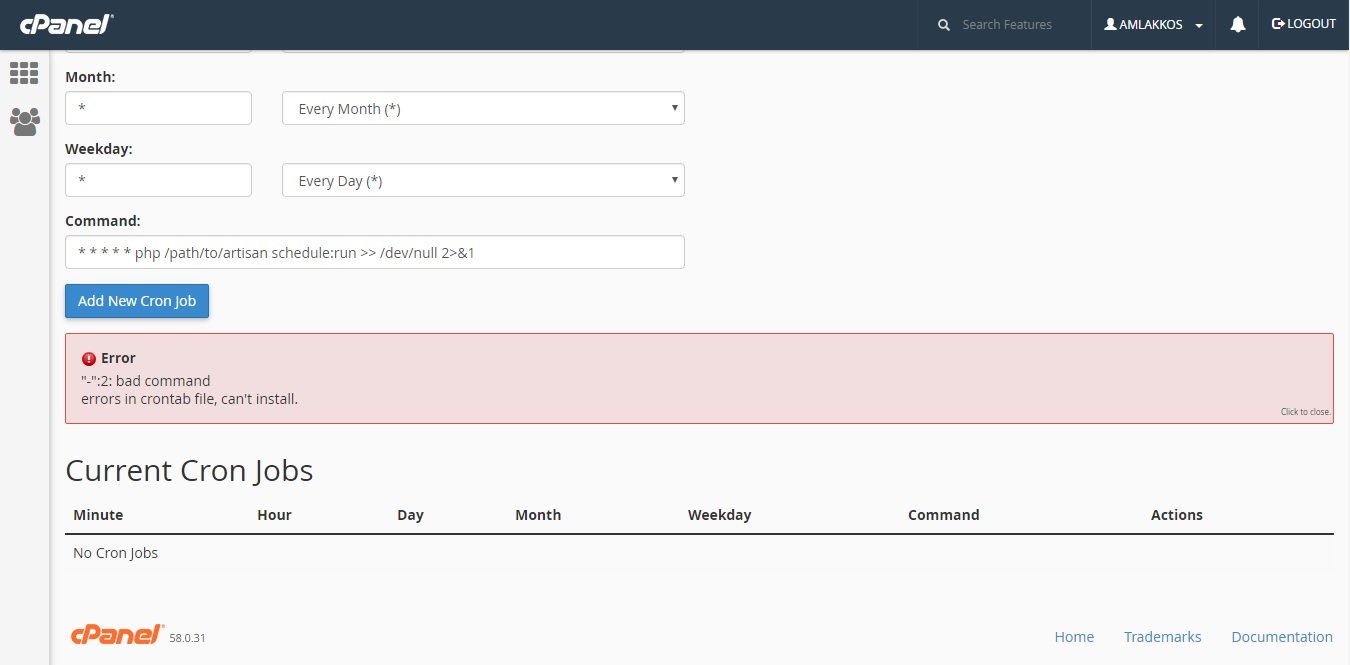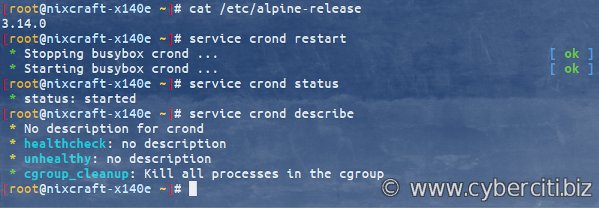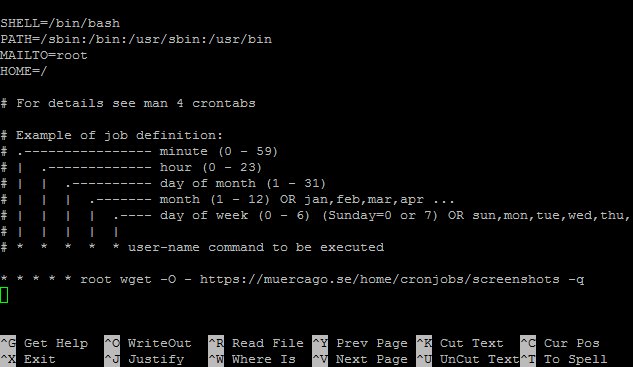Looking to automate tasks on your WordPress website? Enter WordPress crontab. This powerful feature allows you to schedule and execute specific actions, bringing efficiency and time-saving to your site management. How does it work? By setting up cron jobs, you can automate regular tasks such as publishing content, updating plugins, and running backups. In this article, we will dive into the world of WordPress crontab and guide you through the process of harnessing its potential. So, let’s get started!
WordPress CronTab: Automate Tasks for a Smoother Website Experience
An Introduction to WordPress CronTab
WordPress CronTab is a powerful feature that allows you to automate tasks in your WordPress website. Whether it’s scheduling backups, updating plugins, or sending out recurring notifications, WordPress CronTab can handle it all. This feature is built-in to WordPress and does not require any external plugins or tools.
CronTab, short for “Cron Table,” is a time-based job scheduler in Unix-like operating systems. It enables you to schedule tasks to run automatically at specified intervals. WordPress, being a PHP-based platform, has integrated this functionality, making it accessible to all WordPress users.
The primary advantage of using WordPress CronTab is the ability to streamline and automate routine tasks. Instead of manually performing these tasks, you can rely on CronTab to handle them automatically, saving you time and effort. In the following sections, we will explore the different aspects of WordPress CronTab and how you can leverage its power to enhance your website’s functionality.
How Does WordPress CronTab Work?
WordPress CronTab operates by using the concept of scheduled events. These events, or “cron jobs,” are scheduled to run at predefined intervals, such as every hour, every day, or even every month. When a scheduled event is triggered, WordPress executes the associated task or function.
It’s important to note that WordPress CronTab relies on website traffic to trigger events. Each time a visitor accesses your website, WordPress checks if any scheduled events are due and if so, executes them. This means that if your website has low traffic, some scheduled events may not trigger on time.
To overcome this limitation, you can manually configure an external cron job to ensure that your scheduled events run reliably and at the desired intervals. We will discuss how to set up an external cron job later in this article.
Setting Up WordPress CronTab
Configuring WordPress CronTab is a straightforward process. You don’t need any coding expertise to get started. Here’s how you can set it up:
- Access your WordPress dashboard and navigate to the “Tools” section.
- Select the “Cron Events” option.
- You will see a list of scheduled events and their next run times.
- Click on “Add Cron Event” to create a new scheduled event.
- Specify the event details, such as the hook name and the function to be executed.
- Set the interval at which you want the event to run.
- Save the event, and WordPress will handle the rest.
With just a few clicks, you can schedule tasks to run automatically in WordPress. This empowers you to focus on more important aspects of managing your website, while routine tasks get taken care of seamlessly.
Common Use Cases for WordPress CronTab
WordPress CronTab offers endless possibilities for automating tasks on your website. Let’s explore some common use cases where you can leverage the power of WordPress CronTab:
1. Scheduled Backups
Regularly backing up your website is crucial to ensure you have a recent copy of your content and configurations. WordPress CronTab makes it easy to schedule daily, weekly, or monthly backups without manual intervention. You can set up a cron job to trigger a backup plugin or a custom script that handles the backup process.
2. Plugin and Theme Updates
Keeping your plugins and themes up to date is essential for security and compatibility reasons. WordPress CronTab can automatically check for updates and install them at your specified intervals. This ensures that your website remains secure and functions smoothly without any manual effort.
3. Content Publishing
If you frequently publish new content on your website, scheduling posts in advance can be a time-saver. With WordPress CronTab, you can schedule content publishing at specific dates and times, ensuring a consistent flow of fresh content without manual intervention.
4. Database Optimization
Optimizing your WordPress database helps improve website performance and load times. By utilizing WordPress CronTab, you can schedule regular database optimization tasks, such as deleting unnecessary data, optimizing database tables, or running other database maintenance scripts.
5. Email Notifications
Whether it’s sending out newsletters or membership renewal reminders, WordPress CronTab can handle your email notifications. By setting up cron jobs, you can automate the process of sending out recurring email notifications to your subscribers or registered users.
Enhancing WordPress CronTab with External Cron Jobs
While WordPress CronTab offers convenience, it may not be suitable for all scenarios, especially if your website has low traffic. To ensure reliable and timely execution of scheduled events, you can set up an external cron job.
An external cron job is a server-level task scheduler that runs independently of website traffic. By configuring an external cron job, you can trigger the WordPress cron system at specified intervals, regardless of the website’s traffic.
Setting up an external cron job involves the following steps:
- Access your hosting control panel or use an SSH client to connect to your server.
- Locate the cron job settings. This may vary depending on your hosting provider or server configuration.
- Create a new cron job and specify the command to trigger the WordPress cron system.
- Set the desired interval for the cron job to run.
- Save the cron job, and the external scheduler will take care of executing the WordPress cron events at the specified intervals.
By setting up an external cron job, you can ensure that your scheduled events run reliably and on time, regardless of your website’s traffic.
WordPress CronTab offers a powerful and efficient way to automate tasks in your WordPress website. By leveraging the scheduling capabilities of WordPress, you can streamline routine tasks, enhance website performance, and improve the overall user experience.
Whether it’s scheduling backups, updating plugins, or sending out email notifications, WordPress CronTab empowers you to automate these processes without any coding expertise. With just a few clicks, you can set up scheduled events and let WordPress CronTab handle the rest.
If you have a high-traffic website or require precise timing for your scheduled events, setting up an external cron job can ensure reliable execution. By combining the power of WordPress CronTab with an external cron job, you can have full control over when and how your scheduled tasks are executed.
In conclusion, WordPress CronTab is a valuable feature that simplifies website management and improves efficiency. Take advantage of this automation tool to save time and focus on more important aspects of running a successful WordPress website.
How To Disable The WordPress Cron & Replace With A Real Cron Job – A Must For All Ecommerce Websites
Frequently Asked Questions
What is WordPress crontab?
WordPress crontab is a feature that allows you to schedule tasks to be executed automatically at specific intervals. It is a built-in feature of WordPress that utilizes the cron system on your server.
How can I set up a cron job in WordPress?
To set up a cron job in WordPress, you can use a plugin like WP Crontrol or Cron Manager. These plugins provide a user-friendly interface where you can define the tasks you want to schedule and specify the desired intervals.
What type of tasks can I schedule using WordPress crontab?
You can schedule various tasks using WordPress crontab, such as publishing scheduled posts, triggering backups, updating plugins/themes, sending automated emails, fetching RSS feeds, and more. The possibilities are endless, and it depends on your specific needs and the plugins/theme you have installed.
Can I modify or delete a scheduled cron job in WordPress?
Yes, you can modify or delete a scheduled cron job in WordPress. If you’re using a plugin to manage cron jobs, you can easily access the settings and make changes as needed. Alternatively, you can manually edit the crontab file on your server if you’re comfortable with the command line.
Are there any limitations to WordPress crontab?
While WordPress crontab is a powerful tool, there are certain limitations to be aware of. Firstly, the cron tasks rely on website traffic, so if your site doesn’t receive any visitors during the scheduled time, the tasks may not be executed. Additionally, some web hosting providers may restrict the use of cron jobs or impose limitations on their usage. It’s always recommended to check with your hosting provider for any specific restrictions.
Final Thoughts
WordPress crontab is a powerful tool for automating tasks on your WordPress website. By scheduling events at specific intervals, you can efficiently manage updates, backups, and various maintenance tasks. With WordPress crontab, you can easily set up recurring tasks to keep your website running smoothly. It allows you to execute functions and scripts automatically, eliminating the need for manual intervention. By utilizing WordPress crontab effectively, you can save time and improve the overall performance of your website. So, if you want to streamline your WordPress tasks and ensure timely execution, consider implementing WordPress crontab today.




